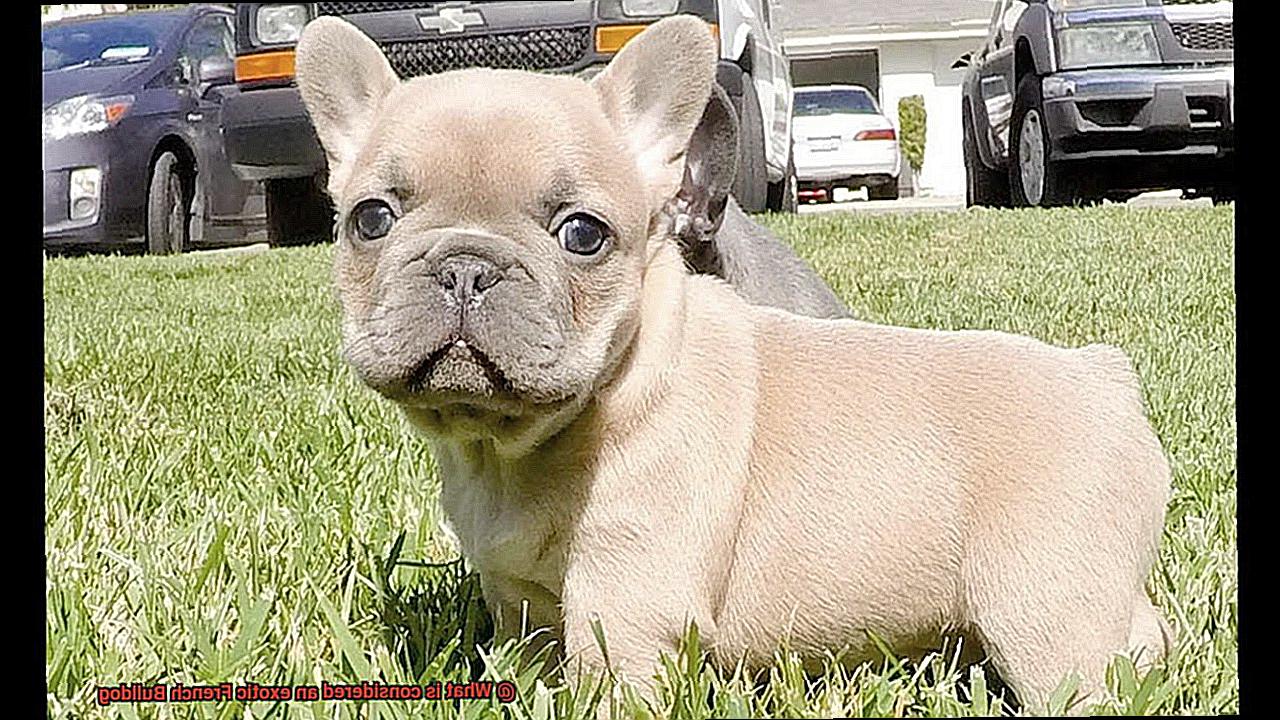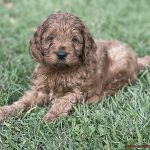What is considered an exotic French Bulldog?
If you’re a fan of these adorable pups, you’re probably curious about what makes them “exotic.” French Bulldogs are already super special, but the term “exotic” adds an extra sprinkle of uniqueness and charm to their already lovable qualities.
French Bulldogs, or “Frenchies” as we affectionately call them, have a fascinating history that adds to their exotic appeal. They first popped up in France back in the 1800s and were beloved companions to lace workers in Nottingham, England. Eventually, they made their way back to France and became all the rage among the fancy folks in Paris. Nowadays, French Bulldogs are adored by dog lovers all over the world.
So, what exactly makes a French Bulldog “exotic”? Well, exotic Frenchies often have eye-catching physical traits that set them apart from the pack. Think stunning coat colors and patterns that go beyond the breed’s usual standards. We’re talking rare hues like blue, lilac, chocolate, and merle. On top of their unique coats, these exotic Frenchies often boast features like a compact yet muscular body, ears that resemble little bat wings, and eyes that can express more than words ever could.
Whether it’s their extraordinary coat colors or one-of-a-kind physical attributes, exotic French Bulldogs are a captivating subset within this already amazing breed. In this blog post, we’re going to dive deeper into the world of these extraordinary dogs. We’ll explore everything from their special qualities to how they should be cared for and why they’ve become so popular among dog enthusiasts like us. So grab yourself a cup of coffee (or tea if that’s your thing), get cozy, and let’s embark on this journey into the wonderful world of exotic French Bulldogs.
Physical Features of an Exotic French Bulldog
Contents
- 1 Physical Features of an Exotic French Bulldog
- 2 Coat Color Variations of an Exotic French Bulldog
- 3 Genetic Mutations in Exotic French Bulldogs
- 4 The Difference Between Standard and Exotic French Bulldogs
- 5 Health Considerations for Exotic French Bulldogs
- 6 Responsible Breeding Practices for Exotic French Bulldogs
- 7 Tips for Potential Owners of Exotic French Bulldogs
- 8 Pros and Cons of Owning an Exotic French Bulldog
- 9 Conclusion
If you’ve ever wondered what makes exotic French Bulldogs so special, you’re in for a treat. In this blog post, we’ll explore the physical features that set these exotic pups apart from their standard counterparts.
From rare coat colors to distinctive facial characteristics, get ready to unravel the secrets behind these one-of-a-kind Frenchies.
Coat Colors that Turn Heads:
While standard French Bulldogs sport classic shades like brindle, fawn, and pied, exotic Frenchies take it to the next level. Picture this – beautiful blues, captivating lilacs, rich chocolates, and mesmerizing merles. These rare coat colors make these dogs true showstoppers wherever they go.
Eyes that Mesmerize:
Standard French Bulldogs usually sport deep brown eyes, but exotic Frenchies have something truly captivating – lighter-colored eyes. Imagine gazing into dreamy blue or enchanting green eyes as your furry friend gazes back at you. It’s like looking into a pool of endless charm.
Muscles Galore:
Exotic French Bulldogs are known for their compact and muscular builds. With a thicker neck, broader chest, and an overall robust appearance, these pups exude strength and athleticism. So get ready for some serious playtime with your exotic Frenchie companion.
Heads That Turn Heads:
When it comes to head structure, exotic French Bulldogs boast unique features that make them stand out from the crowd. A wider skull, larger and more pronounced eyes, and a shorter muzzle give them an irresistible charm. The result? A face that melts hearts everywhere they go.
Ears That Steal the Show:
While standard Frenchies rock their iconic bat-like ears, exotic French Bulldogs bring a twist to the table. Rose ears that fold back elegantly, button ears that adorably fold forward, or even floppy ears that exude charm – these unique ear shapes add an extra touch of personality to your furry friend.
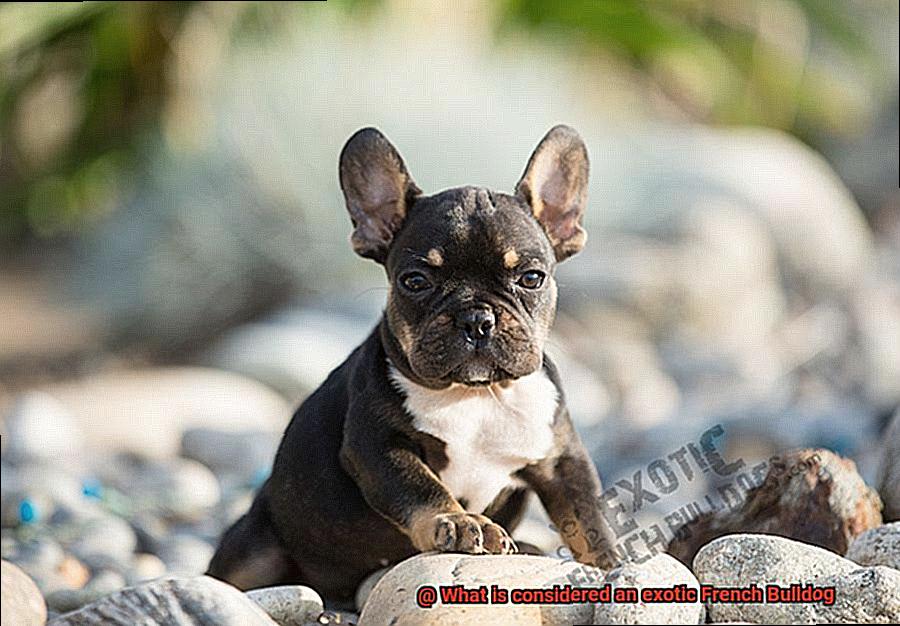
Wrinkles That Wow:
While standard French Bulldogs have their fair share of wrinkles, exotic Frenchies take it up a notch. Deeper and more pronounced wrinkles give them a distinctive appearance that’s sure to make heads turn and hearts melt.
Tails, or Lack Thereof:
If you thought all French Bulldogs had tails, think again. Exotic French Bulldogs may sport shorter tails or even no tail at all. These delightful genetic variations make them even more intriguing and undoubtedly unique.
Coat Color Variations of an Exotic French Bulldog
When it comes to French Bulldogs, their coat colors are like a kaleidoscope of possibilities. These little bundles of joy come in a range of standard coat colors, such as brindle, fawn, and pied. But if you’re looking for something truly extraordinary, the world of exotic coat color variations is where the magic happens.
In this section, we’ll take a closer look at some of the most sought-after coat color variations in exotic French Bulldogs. But before we dive into the world of colors, let’s emphasize the importance of researching reputable breeders.
Why Researching Reputable Breeders Matters
Finding a reputable breeder is crucial when it comes to bringing a new furry family member into your home. Reputable breeders prioritize the health and well-being of their dogs and adhere to responsible breeding practices. They invest time, effort, and resources into ensuring that each puppy they produce is healthy and has a good temperament.
By choosing a reputable breeder, you not only support ethical breeding but also increase your chances of getting a happy and healthy puppy. So, do your homework, ask for references, visit the breeder’s facilities if possible, and make sure they prioritize the overall welfare of the breed.
Now, let’s explore some of the mesmerizing coat color variations that can be found in exotic French Bulldogs.
The Blue French Bulldog: Like a Dreamy Sky
The blue French Bulldog is a stunning variation that results from a dilution of the black pigment in the coat, creating a beautiful bluish-gray color. These dogs often have a lighter shade of blue on their bodies with darker blue markings on their face and ears. Their enchanting eyes seem to hold secrets of the universe.
The Chocolate French Bulldog: A Sweet Delight
If you have a penchant for rich, dark colors, the chocolate French Bulldog will melt your heart. These dogs boast a luscious, deep brown coat that can range from a light chocolate hue to a deep mahogany. Their mesmerizing eyes and velvety coat make them look like delectable treats you just want to cuddle with.
The Marvelous Merle Pattern
Prepare to be captivated by the merle pattern, which gives French Bulldogs a marbled or dappled appearance. This unique coat pattern is caused by a genetic mutation that affects the distribution of pigment in their coat. Merle French Bulldogs can come in various colors, such as blue merle, chocolate merle, or fawn merle, each with its own breathtaking charm.
The Lilac French Bulldog: A Vision of Elegance
Genetic Mutations in Exotic French Bulldogs
When it comes to exotic French Bulldogs, their unique coat colors and patterns can be truly captivating. Imagine strolling down the street with a stunning blue Frenchie by your side, turning heads wherever you go. But did you know that these striking physical traits often come hand in hand with potential health risks?
Let’s delve into the world of genetic mutations in exotic French Bulldogs to better understand the risks involved. Here are some important factors to consider:
- The Merle Gene: This gene is responsible for the mesmerizing marbled or mottled coat pattern seen in some Frenchies. While it may be visually appealing, it can also bring along a host of health issues, including hearing and vision problems. Imagine not being able to fully enjoy your Frenchie’s playful barks or having to navigate a world without clear vision – it’s heartbreaking, isn’t it? Additionally, the Merle gene increases the risk of sunburn and skin cancer, so extra precautions must be taken to protect your furry friend from harmful UV rays.
- The Blue Gene: Ah, the allure of a blue-coated French Bulldog. It’s like having a fluffy cloud prancing around your home. But beware, as this gene can also lead to skin problems and allergies. Your precious pooch may suffer from itchy skin or even hair loss due to a condition called alopecia. Moreover, follicular dysplasia, which results in abnormal hair growth, can also rear its ugly head in dogs with the Blue gene.
- The Chocolate and Lilac Genes: The Chocolate gene provides Frenchies with a rich brown coat color that exudes sophistication and charm. Meanwhile, the Lilac gene offers a diluted version of blue or chocolate tones for a unique twist on traditional colors. However, these genes can also bring about their fair share of health concerns, including skin issues and a higher likelihood of developing certain conditions.
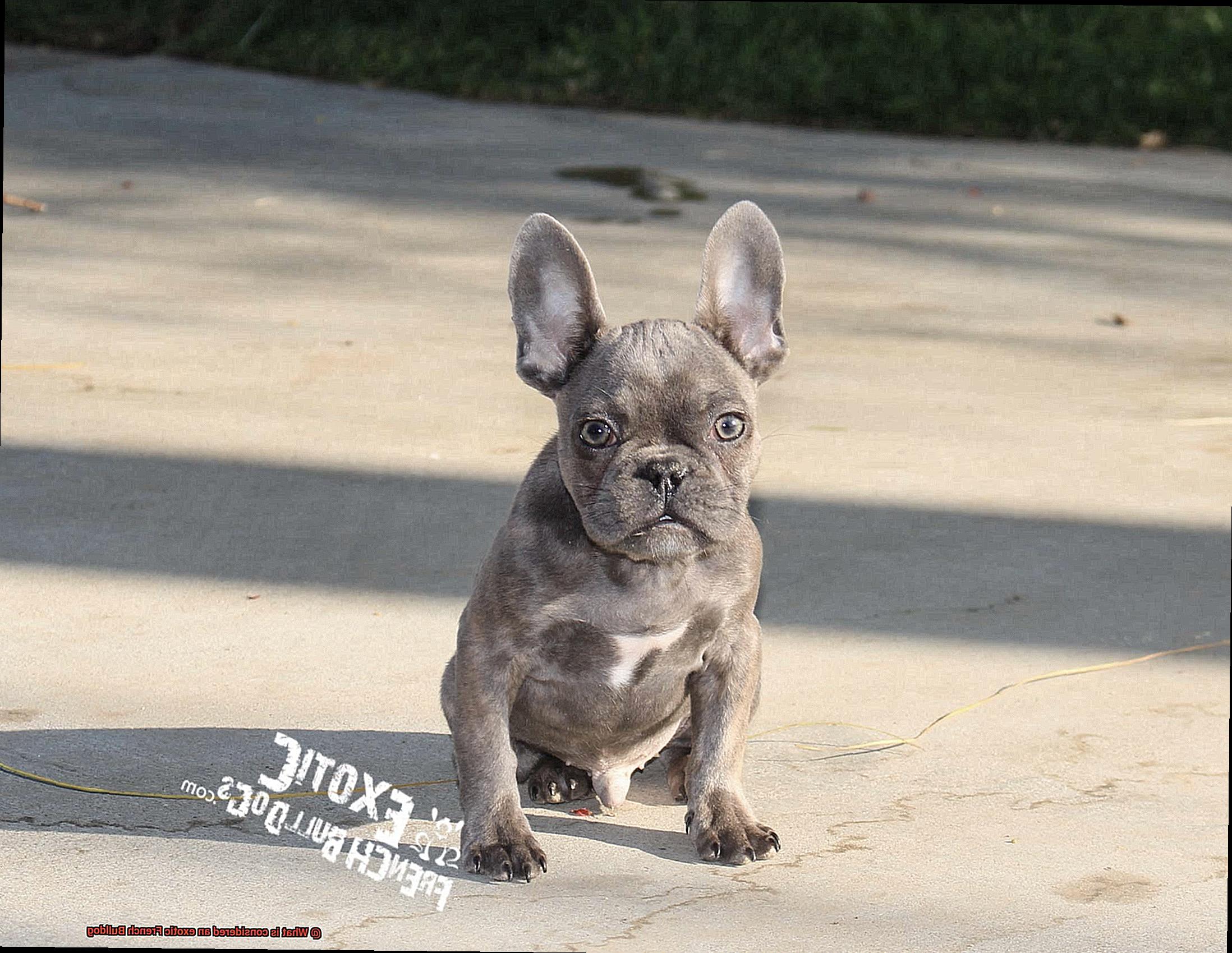
Now, before you recoil in fear, remember that knowledge is power. Responsible breeders prioritize the well-being of their beloved French Bulldogs over superficial traits. It’s crucial to seek out reputable breeders who prioritize health testing and responsible breeding practices. Don’t be shy to ask questions and demand proof of genetic testing for potential health risks.
Remember, a little bit of precaution goes a long way in keeping your furry friend happy and healthy. Genetic testing can identify whether a French Bulldog carries any of these specific genetic mutations, allowing breeders to make informed decisions about breeding pairs and potential health risks for offspring.
The Difference Between Standard and Exotic French Bulldogs
If you’re a French Bulldog enthusiast, you may have heard about the distinction between standard and exotic French Bulldogs. So what sets them apart? Let’s dig into the details and explore the world of these adorable furry companions.
Appearance:
Standard French Bulldogs adhere to the breed standard set by kennel clubs and breed organizations. They have a stocky build, compact body, and distinctive bat-like ears. Their coat colors are typically fawn, brindle, or pied, adhering to the traditional color palette.
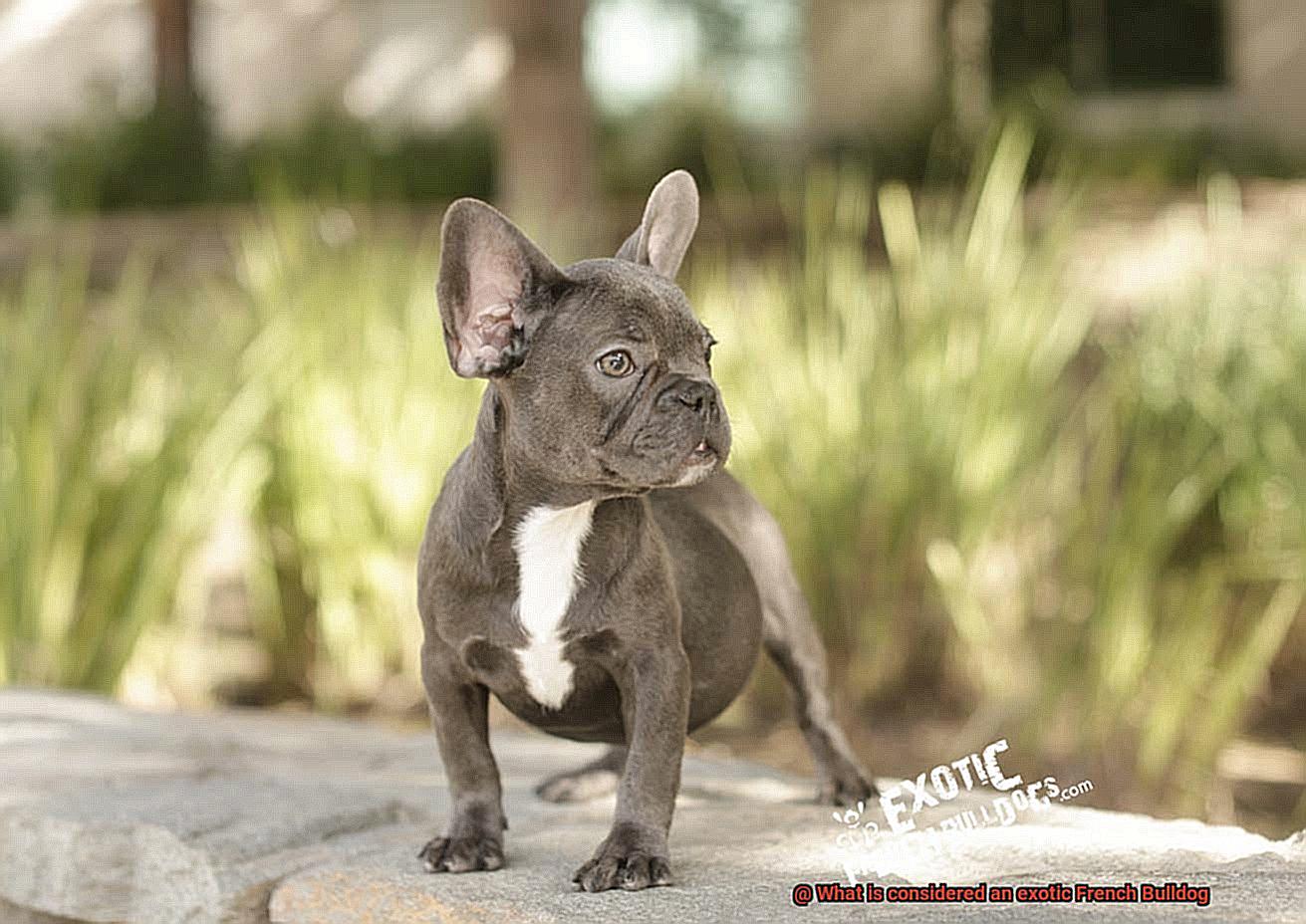
Exotic French Bulldogs, on the other hand, deviate from the standard appearance. They often sport unique and eye-catching features that make them stand out from their standard counterparts. These features can include unusual coat colors or patterns like merle or blue, as well as distinct markings or patterns on their coat.
Physical Attributes:
Exotic French Bulldogs may possess more exaggerated or extreme physical attributes compared to standard French Bulldogs. This can include a more compact or muscular build, shorter legs, or a more pronounced facial structure. These unique physical characteristics contribute to their distinct and captivating appearance.
Health Considerations:
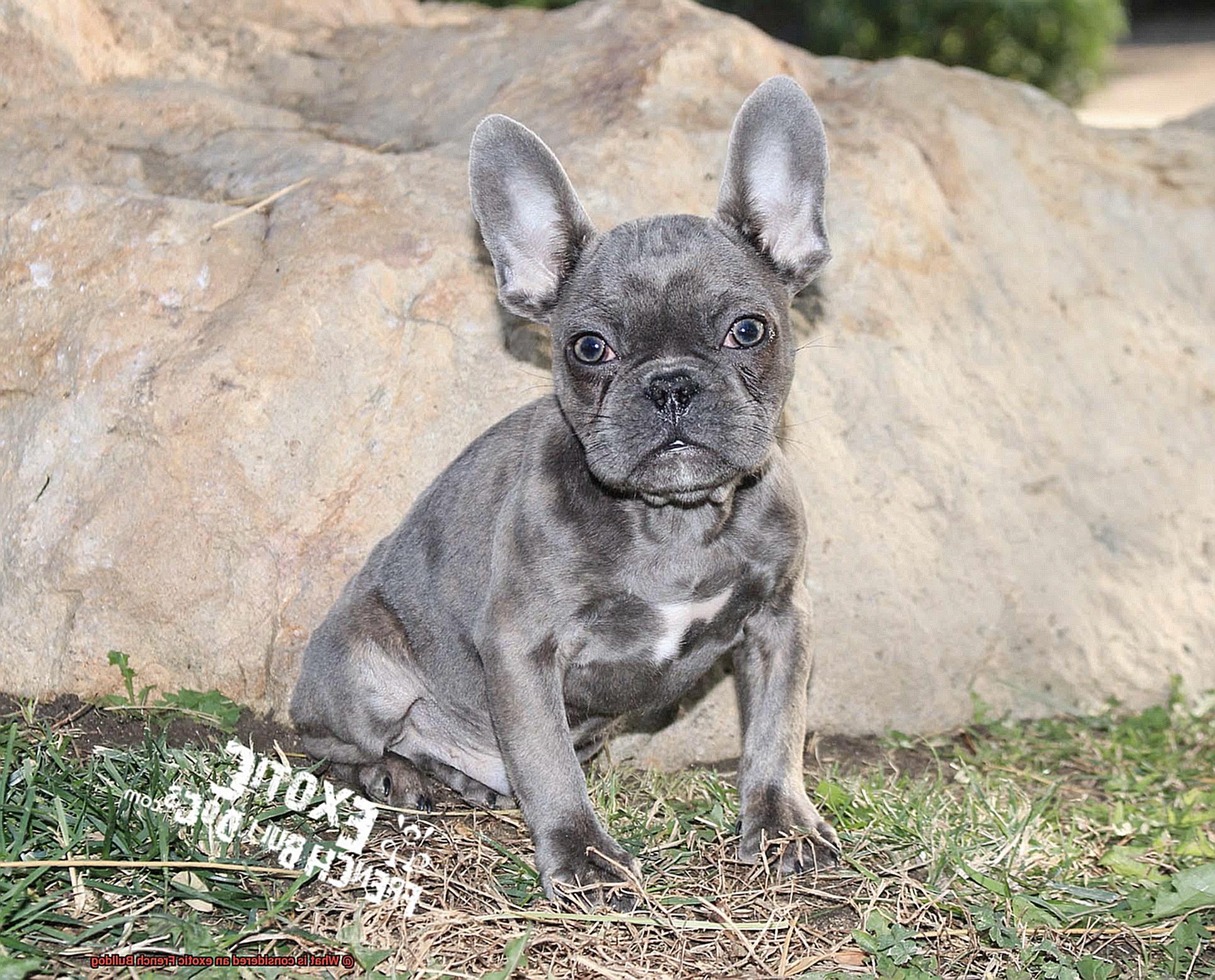
While exotic French Bulldogs may have striking appearances, responsible breeders prioritize the health and well-being of their dogs above all else. This applies to both standard and exotic variations. Potential owners should do thorough research and find reputable breeders who prioritize health testing and responsible breeding practices for both types of French Bulldogs.
Cost:
It’s no surprise that exotic French Bulldogs often come with a higher price tag than standard ones. Breeding exotic French Bulldogs can be more challenging due to the specific genetic traits associated with their unique appearances. Additionally, the rarity of certain coat colors or patterns can drive up the price.
Breeders:
Some breeders focus exclusively on breeding exotic French Bulldogs, while others specialize in both standard and exotic variations. This provides potential owners with a wider range of options, depending on their preferences.
Health Considerations for Exotic French Bulldogs
These unique and rare variations of the traditional breed are known for their striking appearances and captivating features. However, it’s important to understand that these distinct traits can also come with potential health considerations. In this article, we will explore some of the common health issues associated with exotic French Bulldogs and provide you with valuable insights to ensure the well-being of your beloved pet.
Brachycephalic Airway Syndrome:
- Narrowed airways can lead to breathing difficulties, especially during exercise or in warm weather.
- Exotic French Bulldogs with exaggerated facial features are more prone to this condition due to their shorter muzzles and narrower nostrils.
- Regular exercise should be monitored, and overheating should be avoided.
Temperature Regulation:
- Shorter noses and compromised respiratory systems make it challenging for exotic French Bulldogs to regulate their body temperature effectively.
- Provide ample shade, access to fresh water, and avoid excessive exercise during hot and humid weather conditions.
Skin Issues:
- Unique coat colors and patterns in exotic French Bulldogs may increase the risk of skin allergies or sensitivities.
- Regular grooming practices, including proper hygiene and skin care, can help minimize the occurrence of skin problems.
Eye Problems:
- Abnormal eye shapes or positioning can lead to various eye conditions such as cherry eye, dry eyes, or corneal ulcers.
- Regular veterinary check-ups are crucial for monitoring and addressing any potential eye issues.
Spinal and Joint Problems:
- Some exotic French Bulldogs may have a stockier build or shorter limbs, which can put additional strain on their joints and spine.
- Proper exercise routines, weight management, and regular veterinary check-ups can help mitigate the risk of these issues.
Responsible Breeding Practices for Exotic French Bulldogs
Responsible Breeding Practices for Exotic French Bulldogs
When it comes to exotic French Bulldogs, responsible breeding practices are essential for ensuring the health and well-being of these unique and sought-after dogs. Breeding for specific physical characteristics, such as unusual coat colors or patterns, requires careful consideration and adherence to ethical guidelines to avoid potential health issues.
Selecting Healthy Parent Dogs
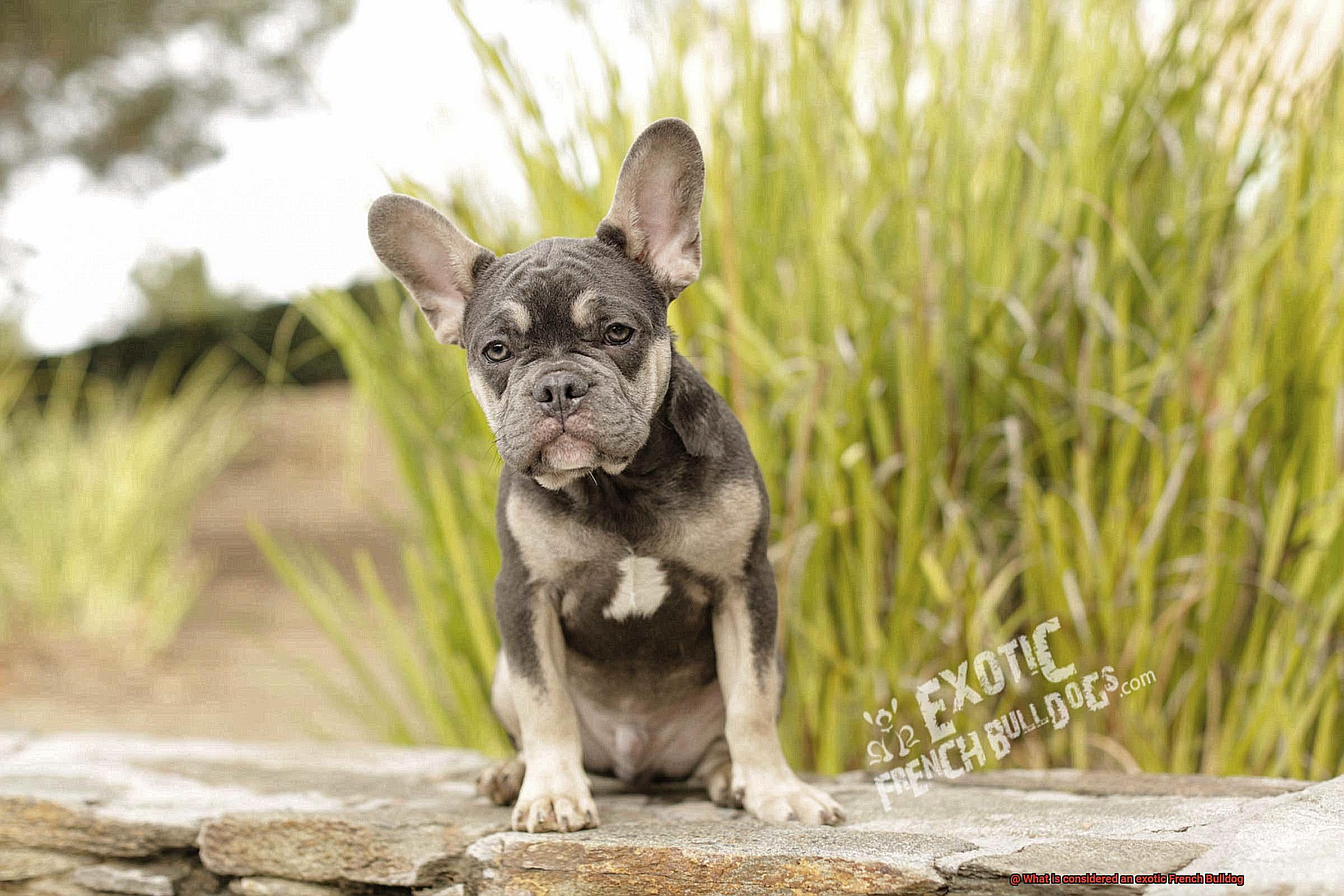
One of the most important aspects of responsible breeding is selecting healthy parent dogs. Breeders should thoroughly screen their breeding dogs for common health issues, including hip dysplasia, brachycephalic airway syndrome, and eye disorders. By choosing parent dogs that are free from genetic diseases and conditions, breeders can help prevent these issues from being passed on to future generations.
Avoiding Extreme Physical Features
It is crucial to avoid breeding French Bulldogs with extreme physical features that can negatively impact their overall health and quality of life. Excessive wrinkle formation on the face or an extremely short muzzle can lead to breathing difficulties and other respiratory problems. Responsible breeders prioritize the overall health and well-being of the breed rather than solely focusing on aesthetic traits.
Understanding Genetics
Responsible breeders should have a thorough knowledge of genetics and understand how different traits are inherited. This helps in making informed decisions when selecting parent dogs for breeding. By understanding the inheritance patterns of certain physical characteristics, breeders can ensure that they are not inadvertently introducing health issues into their breeding program.
Improving Temperament and Conformation
In addition to physical traits, responsible breeders should strive to improve the breed’s temperament, intelligence, and overall conformation. This ensures that the exotic French Bulldogs maintain their breed’s standard characteristics and disposition while still possessing unique physical features.
Proper Socialization and Puppy Development
Ethical breeders prioritize proper socialization and early puppy development. They provide a nurturing environment for puppies, ensuring they receive appropriate care, love, and exposure to various stimuli from an early age. This helps in shaping their temperament and behavior, making them well-adjusted and confident dogs.
Transparency and Support
Responsible breeders are transparent about their breeding practices and are willing to answer questions from potential buyers regarding the health and lineage of their dogs. They may also provide health guarantees and support after the sale to ensure the well-being of their puppies. It is crucial for potential buyers to research and choose a reputable breeder who follows responsible breeding practices to minimize the risk of purchasing a puppy with health issues or from unethical breeding practices.
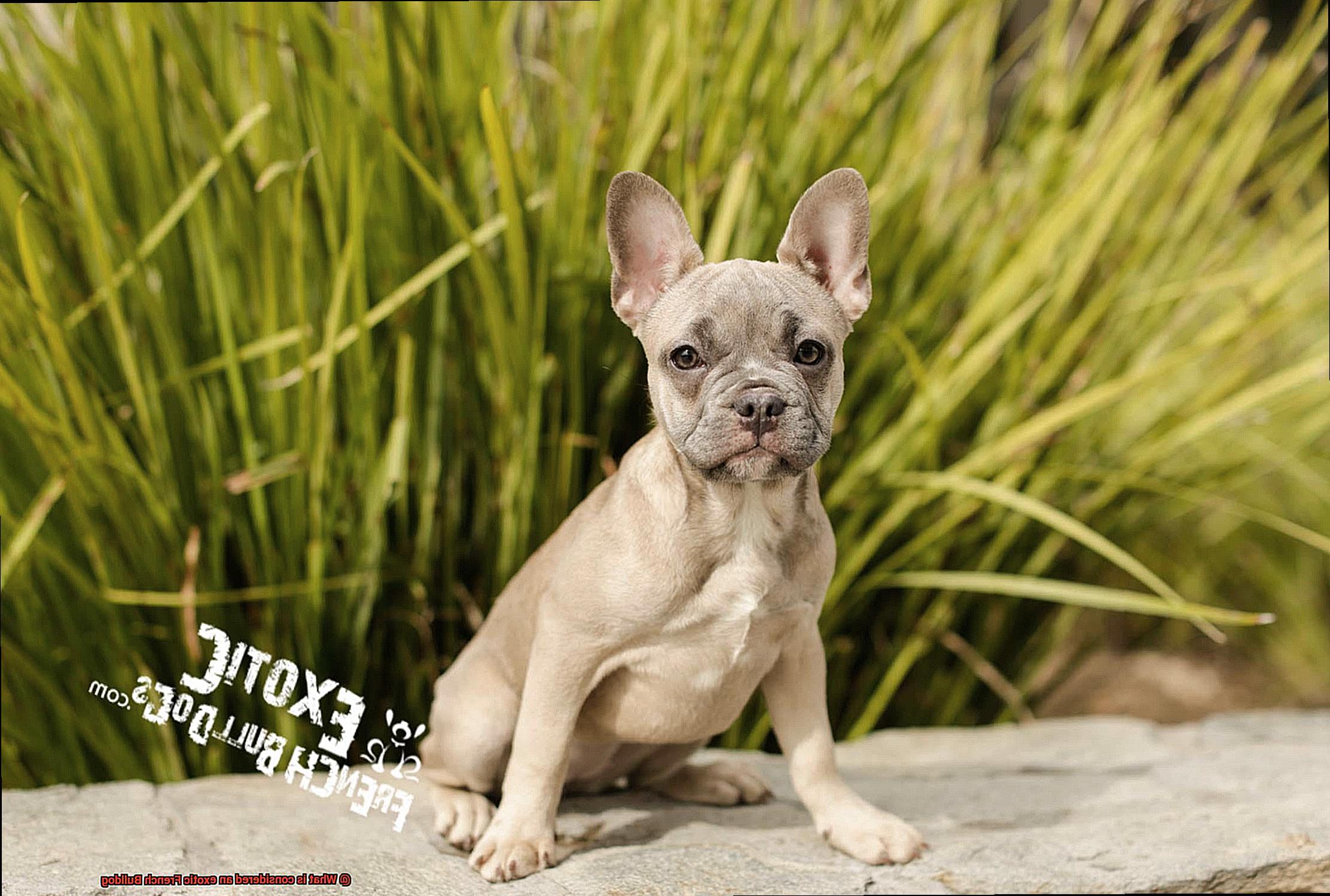
Tips for Potential Owners of Exotic French Bulldogs
These unique and rare breeds come with their own set of challenges and responsibilities. In this blog post, we will provide you with valuable tips to ensure a positive and fulfilling experience with your exotic French Bulldog.
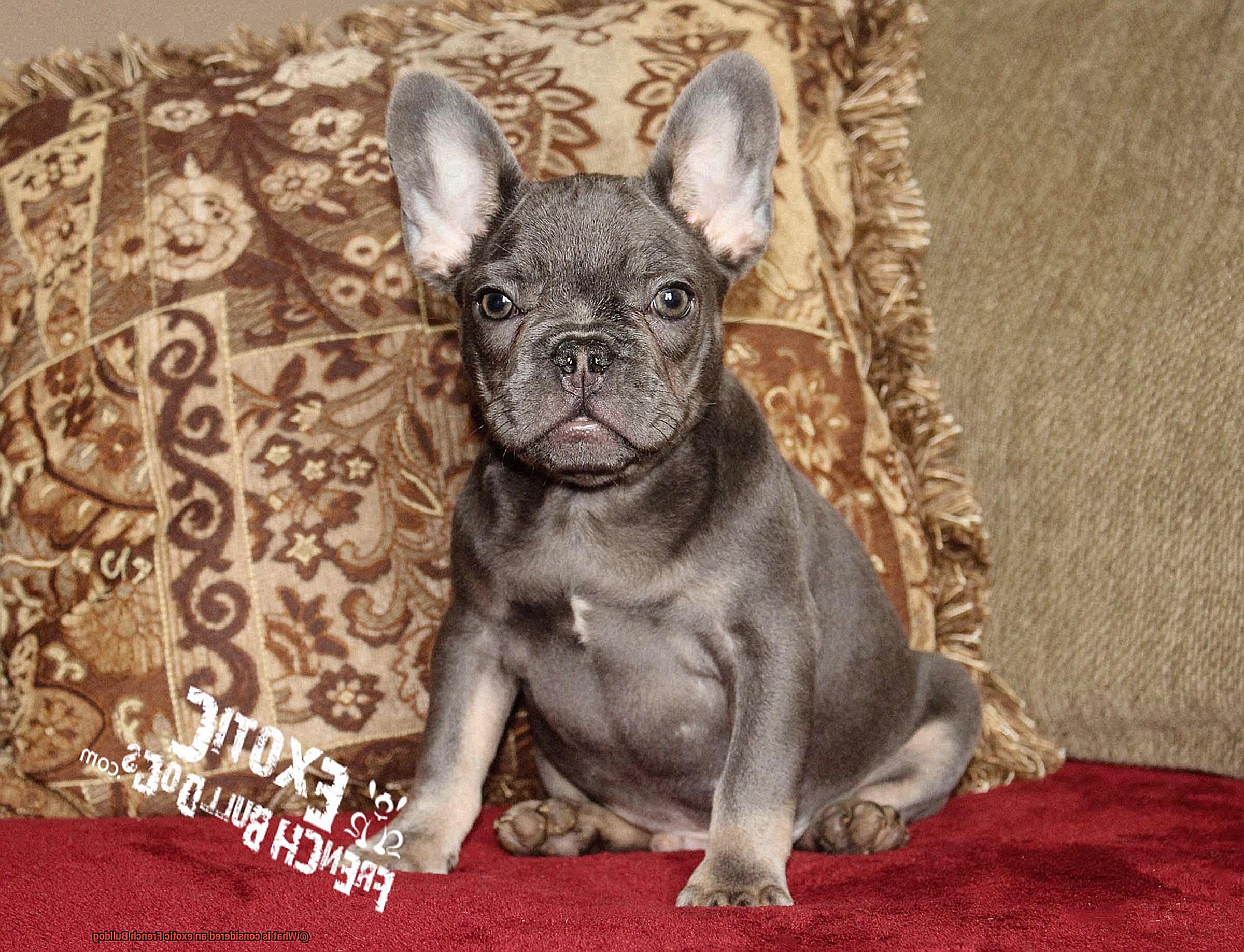
Do Thorough Research:
Before bringing an exotic French Bulldog into your home, it is essential to do your homework. Research reputable breeders who specialize in these unique breeds. Look for breeders with a solid reputation, extensive knowledge, and experience with exotic French Bulldogs. They should provide proper documentation and health guarantees.
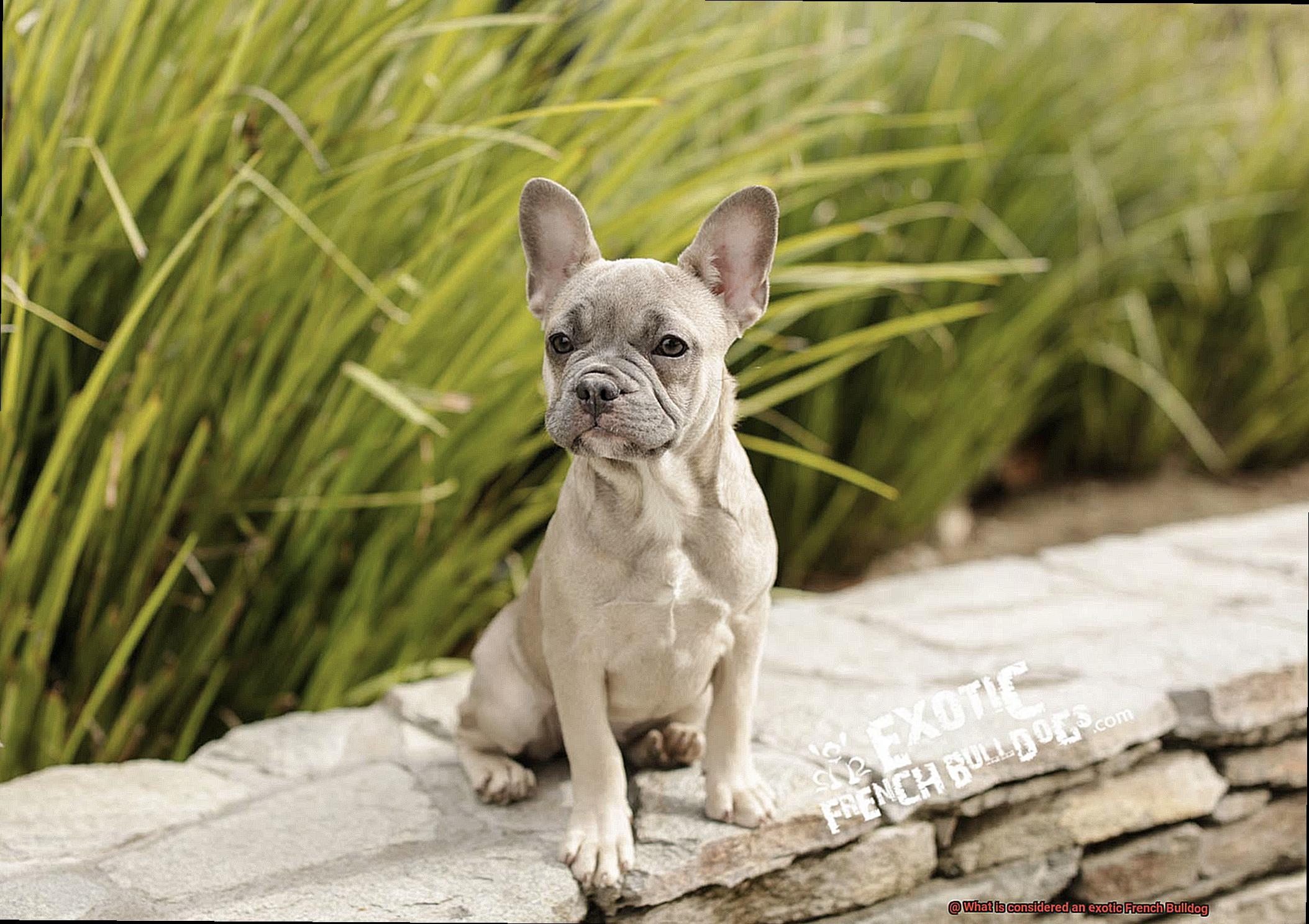
Understand Unique Needs:
Exotic French Bulldogs may have specific health issues or genetic predispositions due to their rare characteristics. Educate yourself about these potential risks and be prepared to provide the necessary care and attention required for these dogs. Regular veterinary care, specialized diets, and proper exercise are vital.
Financial Preparedness:
Owning an exotic French Bulldog can be more expensive than owning a standard breed. They often come with a higher price tag due to their rarity, and they may require additional expenses for specialized care. Budget accordingly to ensure you can provide the necessary financial resources for your furry friend’s well-being.
Training and Socialization:
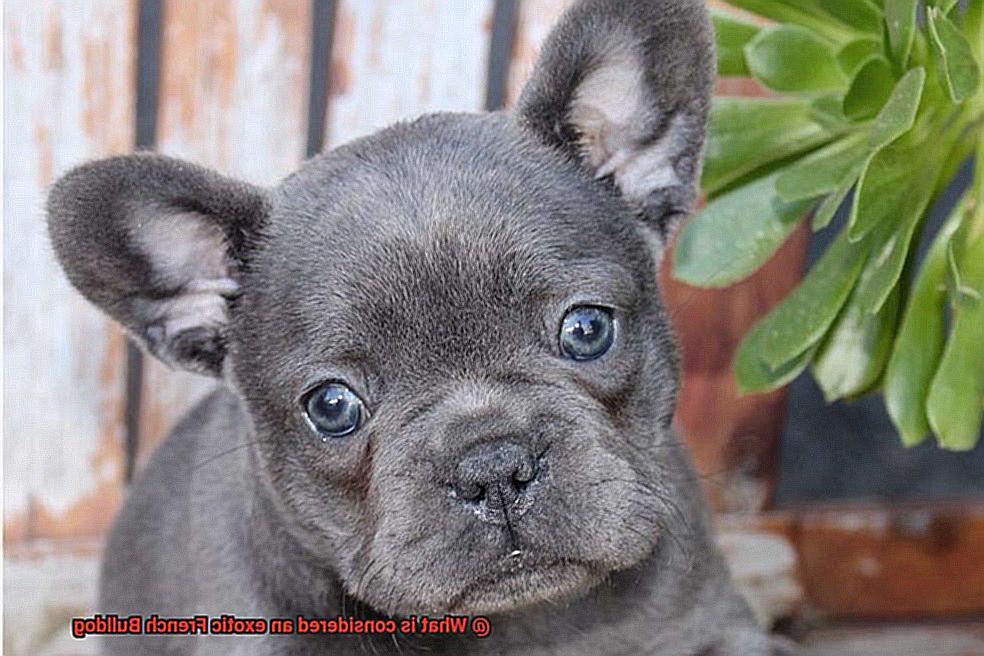
Exotic French Bulldogs may have unique temperaments or behavior traits that require extra attention and training. Invest time and effort into obedience training and socializing your dog from a young age. This will ensure a well-behaved and happy pet that can adapt well to different situations.
Potential Health Issues:
Certain rare coat colors or genetic variations found in exotic French Bulldogs can be linked to specific health conditions. Seek out a breeder who conducts health testing on their breeding dogs to minimize the risk of hereditary health problems. Regular vet check-ups are crucial to catch any potential issues early on.
Pros and Cons of Owning an Exotic French Bulldog
Exotic French Bulldogs are a captivating breed that offers a unique and eye-catching appearance. However, owning one comes with its own set of pros and cons. Let’s explore them in detail:
Pros:
- Unique Appearance: Exotic French Bulldogs have rare coat colors, distinctive markings, and unusual physical features that make them stand out from other French Bulldogs. Owning one can be a source of pride for those who enjoy having a unique pet.
- Conversation Starter: The striking appearance of exotic French Bulldogs often attracts attention and sparks curiosity among people. This can lead to interesting conversations and social interactions, allowing owners to share their love and knowledge of the breed.
- Potential for Show Competitions: If you are interested in participating in dog shows or competitions, owning an exotic French Bulldog can give you a competitive edge. Judges often look for unique features in dogs, and these exotic variations may catch their attention and increase your chances of success in the show ring.
- Breed Enthusiast Community: Owning an exotic French Bulldog connects you to a vibrant community of breed enthusiasts. There are specialized groups, clubs, and online communities dedicated to celebrating and discussing these unique variations of the breed. Being part of such a community allows you to exchange knowledge, share experiences, and connect with like-minded individuals.
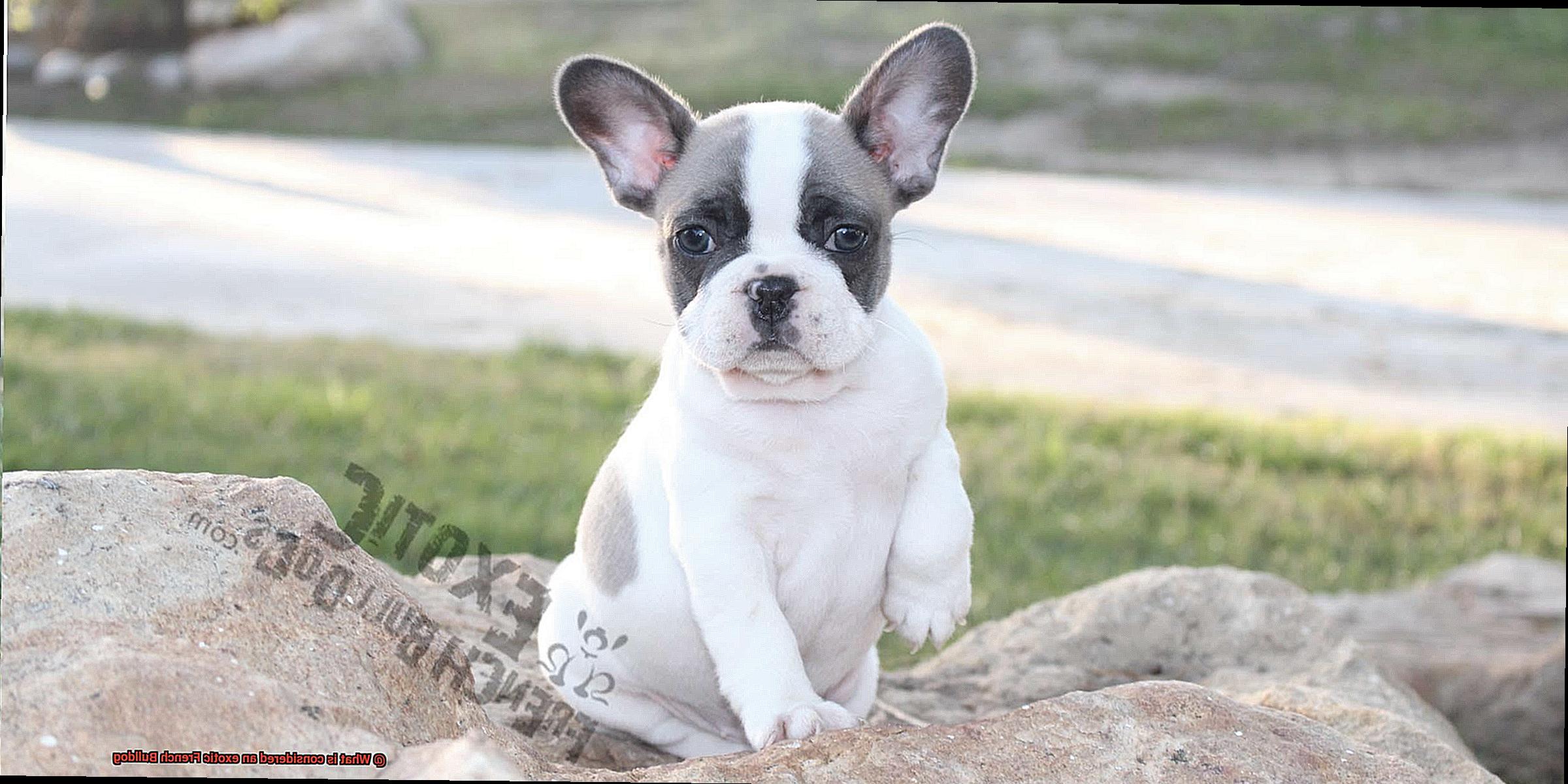
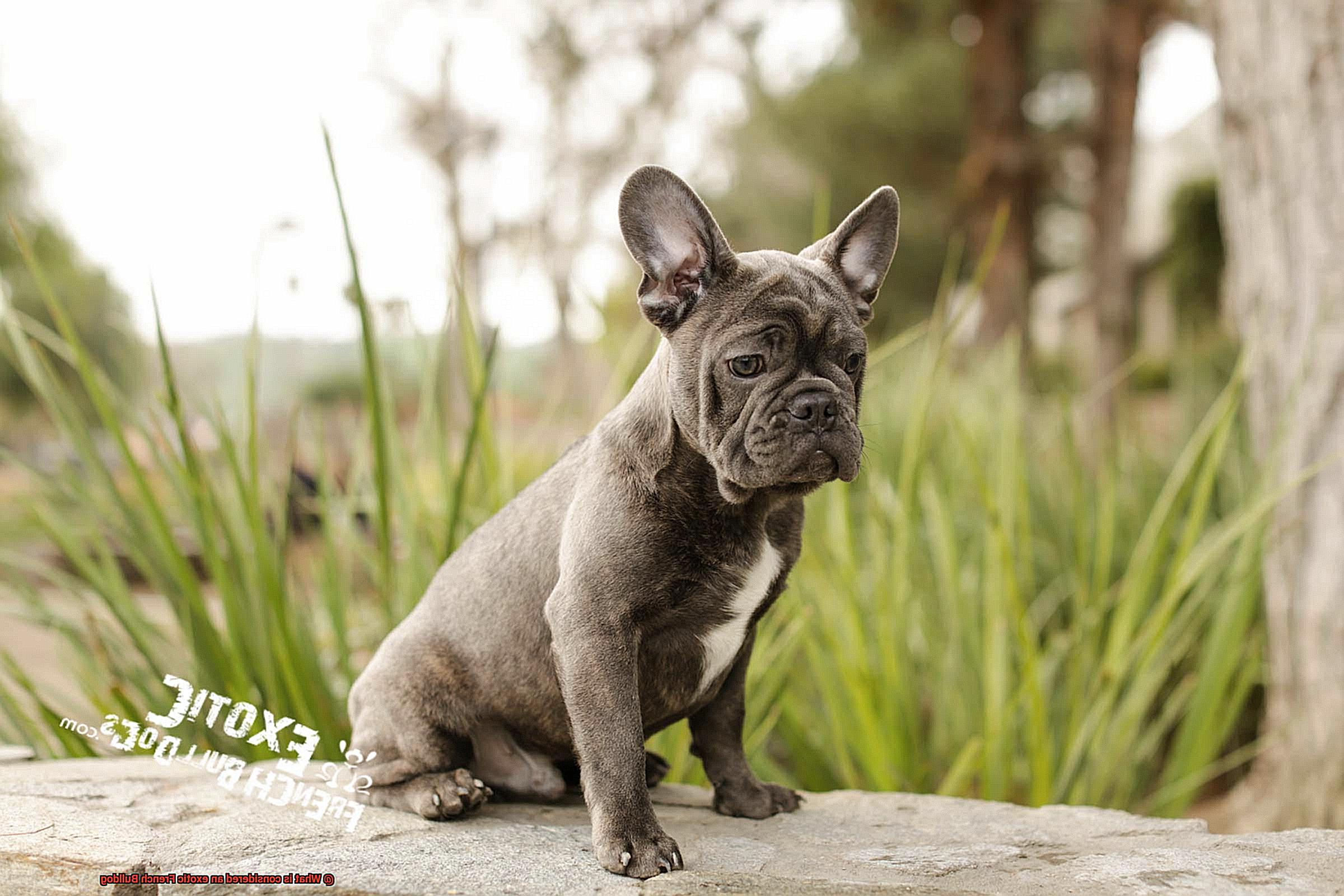
Cons:
- Higher Cost: Exotic French Bulldogs tend to be more expensive compared to standard-colored or standard-featured French Bulldogs. This is due to the rarity of their appearance and the demand for these unique variations. If you are on a tight budget or prefer a more affordable pet, owning an exotic French Bulldog may not be the best option for you.
- Health Concerns: Exotic French Bulldogs, especially those with more extreme physical features, may be prone to certain health issues. Breathing difficulties, skin allergies, joint problems, and eye conditions are among the potential health concerns associated with these dogs. It is important to choose a reputable breeder who prioritizes the health and well-being of their dogs to minimize the risk of encountering such issues.
- Limited Availability: Exotic French Bulldogs are relatively rare compared to their standard counterparts. Finding a well-bred exotic French Bulldog can be challenging, as there may be limited availability and longer waiting periods. It is crucial to exercise patience and thorough research to ensure you find a responsible breeder who prioritizes the breed’s welfare.
- Grooming and Maintenance: Exotic French Bulldogs with unique coat colors or patterns often require extra care when it comes to grooming and maintenance. Certain colors may be more prone to staining, and their coat may require special attention to keep it healthy and looking its best.
283JAEunYRg” >
Conclusion
In conclusion, an exotic French Bulldog is a rare and unique variation of the popular breed.
These dogs possess distinct physical traits that set them apart from the standard French Bulldogs. With their striking coat colors, such as blue, chocolate, lilac, or merle, exotic French Bulldogs capture attention wherever they go.
Their mesmerizing eyes and adorable wrinkles only add to their charm. While these dogs may have a higher price tag due to their rarity, their beauty and individuality make them highly sought after by dog enthusiasts worldwide.
Whether you’re a fan of the classic Frenchie or prefer the allure of an exotic variant, French Bulldogs in all their forms are undeniably captivating companions.
